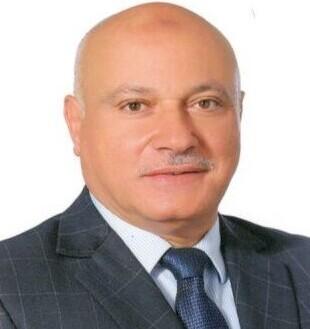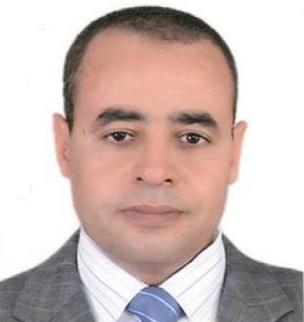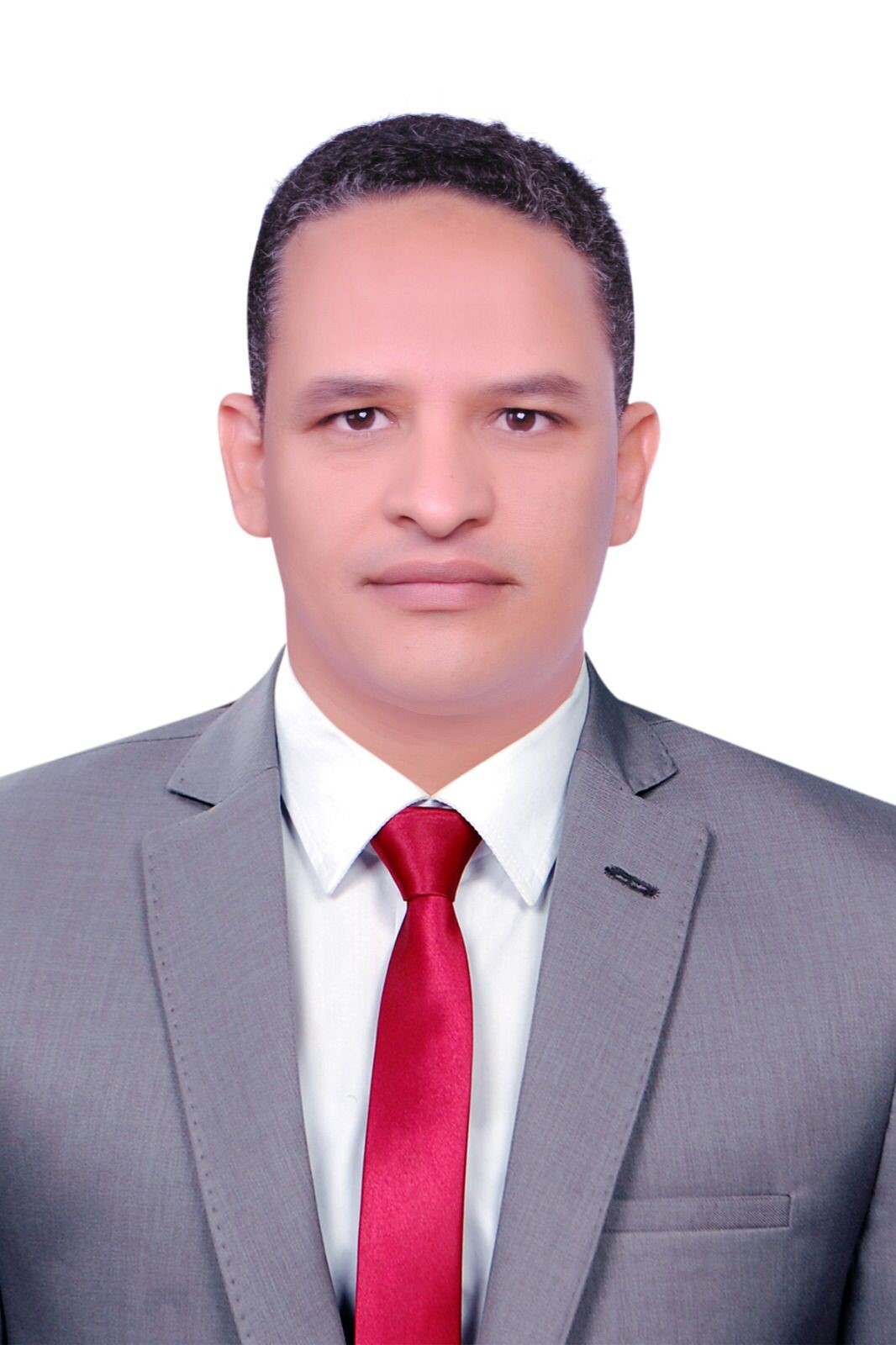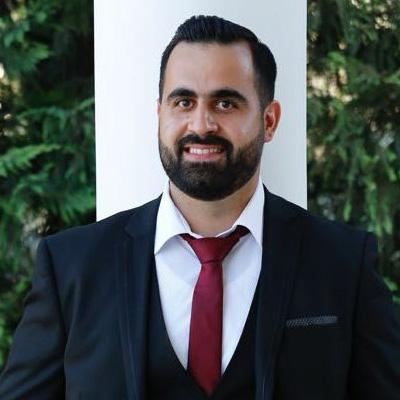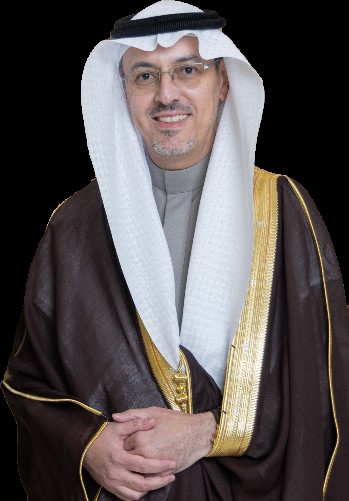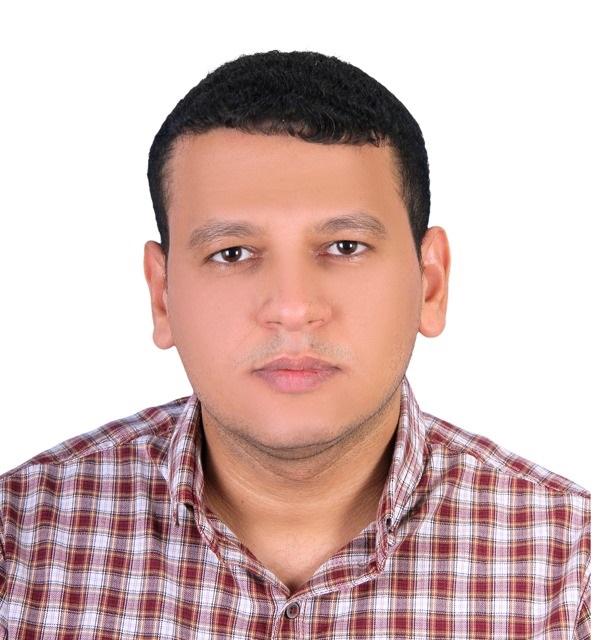
Welcome to the Mechanical Engineering Department at Fahad bin Sultan University!
Welcome to the Mechanical Engineering department at FBSU. The MECH department has one of the highest student population at the FBSU campus with well-established laboratories.
This has put tremendous responsibilities on all faculty members at the department to excel in all three strategic directions of the university; Teaching, Research and Community service.
NEOM Project will include a range of smart technologies and will serve as a “living laboratory and hub for innovation,” according to its planners. Robotics, Mechatronics and Digitization is properly addressed, and a fully functional industrial product innovation is made available. This will be in direct need of qualified Saudi Engineers.
The department is getting sustained support from the administration to upgrade the laboratories assuring state-of-the-art equipment being used for best hands-on experience for its students. Recently, a very high technology Robotics, Mechatronics and Digitization Lab is installed.
Teaching is the most important activity at FBSU and we are continuously improving our program and updating its content and methodology.
Continuous feedback from faculty members, students, industrial advisory committee, and alumni helps the department in its self-assessment efforts to close the loop for sustained improvement of its educational program.
Consequently, MECH is in the process of introducing a postgraduate degree. The Mechanical Engineering Department as part of the FBSU considers the student as its most precious product and by generating new knowledge and inspiring innovation we set our students on the path of high achievement and sustainable success.
MECH@FBSU welcomes both local and international students to our program. If you wish to pursue your mechanical engineering education with us and join the future leaders of the profession, please do not hesitate to contact us.
Prof. Jamal M. Nazzal
Chair
Department of Mechanical Engineering
Mission
The mission of the Mechanical Engineering Department (MECH) is to:
1. To instill in students an understanding of the fundamentals of mechanical engineering, to integrate classroom theory and practical hands-on design projects,
2. To emphasize the process of learning and critical thinking,
3. To develop in students the skills that are necessary to become lifelong learners, and
4. To enlighten them of their leadership role in regional development.
MECH BE Program Educational Objectives (PEOs or POs):
PEO1. Graduates will apply deep engineering knowledge to analyze, design, and innovate solutions for complex technical problems, demonstrating leadership and technical proficiency in their fields.
PEO2. Graduates will demonstrate ethical responsibility and societal commitment in their engineering practice, contributing to sustainable development and collaborating effectively in diverse teams.
PEO3. Graduates will progress in their professional careers, achieving increasing responsibility and impact through roles in design, management, research, or entrepreneurship.
PEO4. Graduates will engage in continuous professional development and lifelong learning to adapt to emerging technologies and evolving global challenges.
MECH BE Program Learning Outcomes
A. Program Learning Outcomes-POs Mapping
|
ABET SLOs |
PIs |
NCAAA PLOs |
POs |
|
1) an ability to identify, formulate, and solve complex engineering problems by applying principles of engineering, science, and mathematics. |
1a) Demonstrate the ability to identify and understand the principles of engineering, science, and mathematics. |
K1) Gain knowledge of mathematics, science, and engineering. |
PO1 |
|
1b) Formulate complex engineering problems by applying the principles of engineering, science, and mathematics. |
K2) Outline engineering problems solutions based on the principles of physical sciences and mathematics. |
PO1 |
|
|
1c) Apply engineering, science, and mathematics principles to develop solutions for complex engineering problems. |
S1) Solve engineering problems by applying principles of mathematics, science, and engineering. |
PO1 |
|
|
2) an ability to apply engineering design to produce solutions that meet specified needs with consideration of public health, safety, and welfare, as well as global, cultural, social, environmental, and economic factors. |
2a) Produce a clear needs statement for a design project, identify constraints, and establish criteria for acceptable and desirable solutions. |
S3) Apply modern techniques and skills to produce solutions in global, economic, environmental, and societal contexts for engineering practice. |
PO2 |
|
2b) Evaluate and analyze the economic aspects of engineering solutions, and use appropriate techniques to assess and manage risks in product or process design. |
|||
|
3) an ability to communicate effectively with a range of audiences. |
3) Communicate effectively with diverse audiences, tailoring the message to the audience's level of understanding and context. |
S5) Communicate effectively with a range of audiences. |
PO3 |
|
4) an ability to recognize ethical and professional responsibilities in engineering situations and make informed judgments, which must consider the impact of engineering solutions in global, economic, environmental, and societal contexts. |
4a) Recognize and uphold ethical and professional responsibilities in engineering situations. |
V1) Uphold ethical and professional responsibilities. |
PO3 |
|
4b) Identify alternative engineering solutions, considering economic, environmental, and societal impacts, and address design conflicts. |
K3) Describe and categorize engineering related contemporary issues. |
PO2 |
|
|
5) an ability to function effectively on a team whose members together provide leadership, create a collaborative and inclusive environment, establish goals, plan tasks, and meet objectives. |
5a) Identify and fulfill roles within a team to ensure success, integrate inputs from all team members, and make decisions based on objective criteria. |
V2) Function and contribute effectively in a team. |
PO3 |
|
5b) Monitor team progress and provide constructive feedback to enhance team performance. |
|||
|
6) an ability to develop and conduct appropriate experimentation, analyze and interpret data, and use engineering judgment to draw conclusions. |
6a) Demonstrate good laboratory practices and instrumentation skills to measure specific quantities and collect required data. |
S2) Develop and conduct appropriate experimentation, analyze and interpret data, and use engineering judgement to draw conclusions. |
PO4 |
|
6b) Use appropriate tools to analyze data, verify and validate experimental results, and account for experimental errors. |
|||
|
7) an ability to acquire and apply new knowledge as needed, using appropriate learning strategies. |
7) Show awareness of the importance of continuous learning and research after graduation, and independently find information relevant to problem-solving. |
S4) Acquire life-long learning skills as needed, using appropriate learning strategies. |
PO4 |
B. PEOs-PIs-NCAAA PLOs Mapping
|
PEOs |
PIs |
NCAAA PLOs |
|
PEO1. Graduates will apply deep engineering knowledge to analyze, design, and innovate solutions for complex technical problems, demonstrating leadership and technical proficiency in their fields. |
1a, 1b, 1c |
K1, K2, S1 |
|
PEO2. Graduates will demonstrate ethical responsibility and societal commitment in their engineering practice, contributing to sustainable development and collaborating effectively in diverse teams. |
(2a, 2b), 4b |
(S3), K3 |
|
PEO3. Graduates will progress in their professional careers, achieving increasing responsibility and impact through roles in design, management, research, or entrepreneurship. |
3, 4a, (5a, 5b) |
S5, V1, (V2) |
|
PEO4. Graduates will engage in continuous professional development and lifelong learning to adapt to emerging technologies and evolving global challenges. |
(6a, 6b), 7 |
(S2), S4 |
Laboratories
Mechanical Engineering Department is furnished with high quality state-of-art laboratories that support research and teaching activities for Thermal, Applied, Power, Energy, Mechatronics and Robotics Engineering Programs.
These laboratories including a very well high technology Industry 4. Factory Lab (Robotics, Mechatronics and Digitization Lab) and manned with highly qualified and well-trained personnel.
The Department hosts the following eight major laboratories:
1) Mechanical Engineering Graphics,
2) Mechanical Engineering Materials,
3) Heat Transfer,
4) Fluid Mechanics,
5) Instrumentation and Measurements,
6) Manufacturing Processes,
7) Robotics, Mechatronics and Digitization Lab
8) Dynamics Systems and Control.
Curriculum Structure
The curriculum is designed to comply with the requirements of ABET accreditation. It includes courses in basic sciences and mathematics, engineering sciences, engineering design, communications skills, and humanities and social sciences. Lab hands-on experience and emphasis on design are important elements that are integrated throughout the curriculum.
Related to the study plans,The requirements of the BME include:
1) Study plan 2020:
|
Type of Requirement |
Credit Hours |
|
University Requirements |
30 |
|
College Requirements |
37 |
|
Specialization Requirements |
55 |
|
Specialization Elective |
12 |
|
Total |
134 |
Distribution of Chrs. in terms of the Requirement for the study plan 2020
|
Type of Requirement |
Basic Sciences and Math (CH) |
Humanities (CH) |
Engineering (CH) |
Total Chrs. &% |
|
University Requirements |
6 |
24 |
30 (22.4%) |
|
|
College Requirements |
26 |
3 |
8 |
37 (27.6%) |
|
Specialization Requirements |
55 |
55 (41.0%) |
||
|
Specialization Electives |
12 |
12 (9.0%) |
||
|
Total |
32 (23.9%) |
27 (20.1%) |
75 (56.0%) |
100% |

2) Study plan 2023:
|
Type of Requirement |
Credit Hours |
|
University Requirements |
37 |
|
College Requirements |
40 |
|
Specialization Requirements |
69 |
|
Specialization Elective |
12 |
|
Total |
158 |
Distribution of Chrs. in terms of the Requirement for the study plan 2023
|
Type of Requirement |
Basic Sciences and Math (CH) |
Humanities (CH) |
Engineering (CH) |
Total Chrs. &% |
|
University Requirements |
9 |
28 |
37 (23.4%) |
|
|
College Requirements |
29 |
11 |
40 (25.3%) |
|
|
Specialization Requirements |
69 |
69 (43.7%) |
||
|
Specialization Electives |
12 |
12 (7.6%) |
||
|
Total |
38 (24.1%) |
28 (17.7%) |
92 (58.2%) |
158 (100%) |
The curriculum is designed to allow students to receive the Bachelor of Engineering degree upon the successful completion of the required credit hours. The first common year with other engineering majors allows students to switch between the engineering majors at the start of the second year of their study.

Degree Requirements
To graduate with a Bachelor Degree in Mechanical Engineering (BCE), students must satisfactorily complete 134 credit hours (2022 study plan) or 158 credit hours (2023 study plan). The distribution of courses in the proposed study plan is as follows:
University requirements
The University requirements for the Bachelor degree in CE total 30 credit hours and are distributed as follows:
• 6 credit hours of Arabic: ARAB 101 and ARAB 201;
• 9 credit hours of English communication skills: ENGL 101, ENGL 102, and ENGL 203;
• 9 credit hours of social and cultural studies: SOCS 101, SOCS 201, and SOCS 202;
• 3 credit hours of computing for engineers: CSC 101;
• 3 credit hours of mathematics: MATH 101.
College requirements
The College of Engineering requirements for the Bachelor degree in CE total 41 and are distributed as follows:
• 12 credit hours in basic sciences: PHYS 101/ 101L, PHYS 102/ 102L, and CHEM 101/ 101L;
• 15 credit hours in mathematics: MATH 102, MATH 201, MATH 202, MATH 215, and STAT 230;
• 3 credit hours in technical writing: ENGL 206;
• 3 credit hours in engineering economy: COEN 300;
• 3 credit hours in engineering ethics: COEN 400;
• 4 credit hour final-year project during the senior year: MECH 498 and MECH 499;
• 1 credit hour internship (MECH 400) after completing 100 credit hours.
Program requirements
The program requirements for the BCE total 66 credit hours and are distributed as follows:
• 51 credit hours for the courses:
CIVE 210, ELEE 230; MECH 201 MECH 210 MECH 220 MECH 231
MECH 232 MECH 233 MECH 308 MECH 310 MECH 320 MECH 330
MECH 341 MECH 342 MECH 343 MECH 344 MECH 352 MECH 353
MECH 360 MECH 361L MECH 400 MECH 434 MECH 490 MECH 491
• Four 3-credit hour electives from Mechanical Engineering;
• One 3-credit hour free elective Course.
Final Year Project
As part of their fourth year, students are required to carry out a project and submit a technical report. This project is a substantial piece of work that will require creative activity and original thinking. Students in groups, normally three per group, are supervised while working on a project accounting for four credit hours, extending over a full academic year. The project aims to provide students with a transitional experience from the academic world to the professional world. It is designed to serve as a platform in which ME students in teams engage in a meaningful design experience requiring the solution of engineering design projects. The objectives of the final year project are:
• To allow students to demonstrate a wide range of the skills learned at the College of Engineering during their course of study by asking them to deliver a product that has passed through the design, analysis, testing and evaluation
• To encourage multidisciplinary research through the integration learned in a number of courses.
• To allow students to develop problem solving, analysis, synthesis and evaluation skills.
• To encourage teamwork.
• To improve students' communication skills by asking them to produce both a professional report and a professional poster and to give an oral presentation.
The project is important for a number of reasons:
• It is the largest single piece of design work that a student does during his/her BE degree program.
• It allows students to specialize in a topic that they enjoy.
• It is the work that prospective employers will most likely ask students about during an interview.
• It allows students to show a wide range of the skills learned since the first year.
• Students must demonstrate these skills by delivering a product that has passed through the design, analysis, manufacturing, testing and evaluation.
Career Opportunities
The Mechanical Engineering Department is committed to providing its students with meaningful, up-to-date skills and knowledge that will allow them to pursue successful engineering careers and make deep impacts both within the Tabuk province and across the Gulf region at large. With these objectives in mind, the ME program is designed around fostering contemporary best practices and skills in line with the job opportunities for mechanical engineers within Tabuk and the Gulf.
Mechanical systems are part of our everyday life, whether it is the car we drive, the plane we fly, the lift we use, or the products we handle. The fields that are part of mechanical engineering are numerous and cover a very large spectrum. This means that the mechanical engineering student has a challenging program to cover, but it also means that the opportunities offered to mechanical engineers are as wide and diverse.
Mechanical engineers are concerned with the planning, design, construction, implementation and operation of mechanical and related systems in a wide variety of situations. Other disciplines including biomechanics, environment protection and many other vital and emerging fields frequently rely on the expertise of mechanical engineers. Mechanical engineers work in a variety of areas including research and development, design, operations, maintenance, quality assurance, bioengineering, transportation (especially automotive and aerospace), energy, heating, ventilating, refrigeration and air conditioning, environmental and life-support systems, chemical, food production, materials processing, automated manufacturing and construction, heavy and precision machinery, robotics, and mechatronics. A wide spectrum of career opportunities is open to them. Because of the very broad nature of their discipline, mechanical engineers are usually in high demand. Beyond working for private enterprise, some graduates may work in government and non-government organizations, others may choose to pursue graduate studies or start their own business.
Partnership with NEOM
NEOM, Saudi Arabia’s visionary "smart and high technology projects”, has partnered with Fahad Bin Sultan University to offer an internal scholarship program for students pursuing bachelor’s degrees. Selected candidates will follow a specialized Mechatronics and Robotics engineering track, with opportunities to contribute to NEOM’s mega-projects and its operating companies upon graduation. This collaboration aims to develop skilled national talent, create employment opportunities, and empower both male and female students to drive innovation in the region.
As a living laboratory for cutting-edge technologies, NEOM prioritizes robotics, mechatronics, and digital transformation, requiring highly qualified Saudi engineers to support its advanced infrastructure. To meet this demand, the Mechanical Engineering Department offers a dedicated Mechatronics and Robotics track, equipping students with the expertise needed for NEOM’s smart industries and product innovation hubs. This partnership underscores a shared commitment to fostering Saudi Arabia’s technological future and positioning NEOM as a global leader in sustainable and automated urban development.
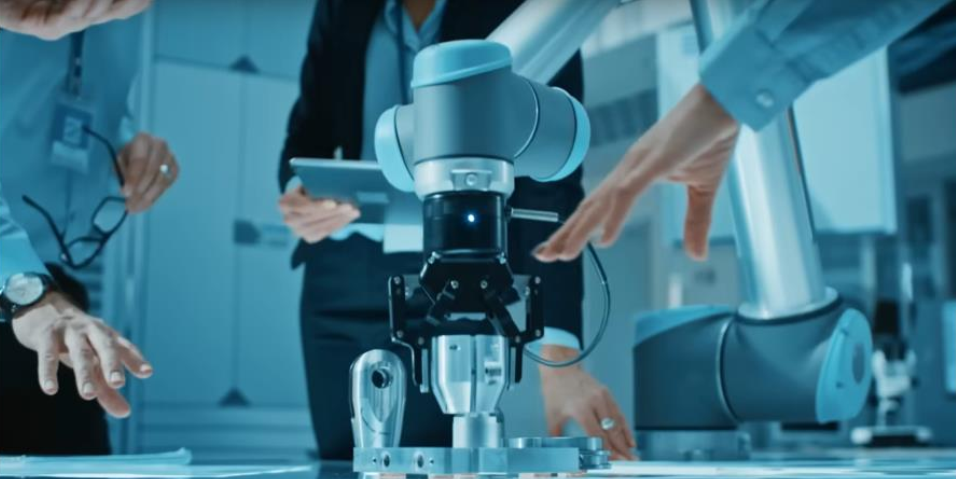
Practical Training
All engineering students are required to fulfill a 1-credit hour internship period of 8 to 12 weeks. This graduation requirement entails that each senior student (one who has completed around 80% of the total credit requirement) gains practical training experience during the summer term prior to graduation, or in the graduation semester, with either a company or an academic institution while involved in a practical experience.
Program Statistics
|
Bachelor of Mechanical Engineering (BEE) |
|||||||||||||
|
Academic Year |
Enrollment Status |
Enrollment Year |
Total Undergrad |
Total Grad |
Degrees Awarded |
||||||||
|
1st |
2nd |
3rd |
4th |
5th |
Associates |
Bachelors |
Masters |
Doctorates |
|||||
|
Current Year |
2025-2026 |
FT |
68 |
55 |
70 |
46 |
0 |
239 |
|
|
|
|
|
|
Current Year |
2025-2026 |
PT |
|
|
|
|
|
|
|
|
|
|
|
|
1 |
2024-2025 |
FT |
70 |
50 |
62 |
48 |
0 |
230 |
|
|
67 |
|
|
|
1 |
2024-2025 |
PT |
|
|
|
|
|
|
|
|
|
|
|
|
2 |
2023-2024 |
FT |
63 |
52 |
61 |
19 |
0 |
195 |
|
|
36 |
|
|
|
2 |
2023-2024 |
PT |
|
|
|
|
|
|
|
|
|
|
|
|
3 |
2022-2023 |
FT |
10 |
66 |
44 |
29 |
18 |
167 |
|
|
38 |
|
|
|
3 |
2022-2023 |
PT |
|
|
|
|
|
|
|
|
|
|
|
|
4 |
2021-2022 |
FT |
5 |
38 |
36 |
33 |
14 |
126 |
|
|
38 |
|
|
|
4 |
2021-2022 |
PT |
|
|
|
|
|
|
|
|
|
|
|
|
5 |
2020-2021 |
FT |
5 |
23 |
25 |
34 |
16 |
103 |
|
|
40 |
|
|
|
5 |
2020-2021 |
PT |
|
||||||||||
